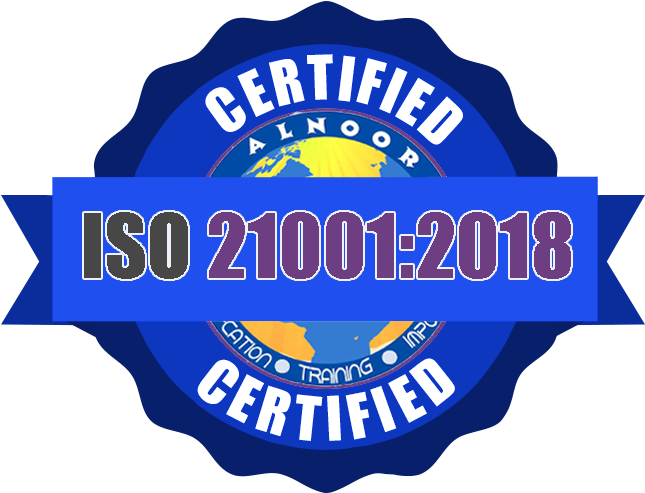
ISO 21001, Educational Organization Management Systems, is published international standard by the International Organization for Standardization, and released in early 2018[1]. It is intended provide a common management tool for organizations providing educational products and services capable of meeting learner and other customer requirements and needs. It is a stand-alone management system standard, based on ISO 9001 (without being a sector application), and aligned with other ISO management system standards through the application of the High Level Structure. ISO 21001 focuses on the specific interaction between an educational organization, the learner, customers and other relevant interested parties. ISO 21001 specifies requirements for an Educational Organization Managements System (EOMS) when such an organization: needs to demonstrate its ability to consistently provide, share and facilitate the construction of knowledge to learners conforming with applicable statutory and regulatory requirements aims to enhance satisfaction of learners, other customers, and personnel through the effective application of its EOMS, including processes for improvement of the system. All requirements of ISO 21001 are generic and intended to be applicable to all educational organizations that provide, share and facilitate the construction of knowledge to learners through teaching, training or research, regardless of type, size and product and service provided. The standard therefore applies to the management system of any organization which utilizes a curriculum to provide, share and transfer knowledge.
ISO 21001, Educational Organization Management Systems,
is published international standard by the International Organization for Standardization, and released in early 2018[1]. It is intended provide a common management tool for organizations providing educational products and services capable of meeting learner and other customer requirements and needs.
It is a stand-alone management system standard, based on ISO 9001 (without being a sector application), and aligned with other ISO management system standards through the application of the High Level Structure.
ISO 21001 focuses on the specific interaction between an educational organization, the learner, customers and other relevant interested parties.
ISO 21001 specifies requirements for an Educational Organization Managements System (EOMS) when such an organization:
needs to demonstrate its ability to consistently provide, share and facilitate the construction of knowledge to learners conforming with applicable statutory and regulatory requirements
aims to enhance satisfaction of learners, other customers, and personnel through the effective application of its EOMS, including
In the case of complaints please send Us
See More Certificates Our Company
AL-NOOR GROUP Certification is always a perfect choice because we always strive to understand your demands and work hard to achieve them , we also feel our commitment towards our customers and that we are responsible to do our work with most acceptable quality and in good time and distinguished cost .
Yes, it can. This usually happens when an organisation becomes dissatisfied with the service provided by a certification or the fee it charges. Perhaps the quality of the audits or auditors is not as would be expected, additional ‘extra’ fees are being added to invoices, or the certificate does not display a valid accreditation mark? For companies wishing to enter international markets or win an important client, an accreditation mark, such as EGAC, can play a crucial role.
The world’s Accreditation Bodies are those bodies who are offiailly formulated by thier govornments , together they created an international forum in Australia with the name if International accreditation forum IAF , they signed together an agreement to allow each other to work internarionally with no obsticles , this agreement calles the multilateral agreement .
that mean any accrediation body who is member in IAF can issue ISO certificates in any country who is member in the MLA in IAF with no any kind of problems .
AL-NOOR GROUP Certification is Accredited by EGAC in Egypt , EGAC full member in IAF and signed the MLA at IAF .
It gives value and credence to the certification. An accredited certificate is usually the only type accepted in tenders for new business.
Accreditation is the approved recognition of a certification body to perform certifications against different standards. Every country has its own regulated accreditation body. These bodies issue accreditations to certification bodies such as AL-NOOR GROUP Certification. Accreditation is achieved by demonstrating prescribed controls and systems are in place. These requirements are also defined by international standards (for systems certification this is ISO 17021).
ISO is an abbreviation for the International Organization for Standardization based in Geneva. This organisation issues international standards called ISO.
Certificates for a limited time period, usually for three years, are issued by an accredited certification body. In order to keep the certificate valid, a periodic audit is performed, typically once a year. If fundamental deviations from the standard requirements are discovered, the extreme measure of the certificate withdrawal can be applied. This is a very rare, exceptional and unpleasant situation. Therefore, when a company decides to implement and follow an ISO standard, it is a voluntary commitment to continuous improvement and development, which is worth the company’s effort.
Copyright © 2023 AL-NOOR GROUP, All rights reserved.